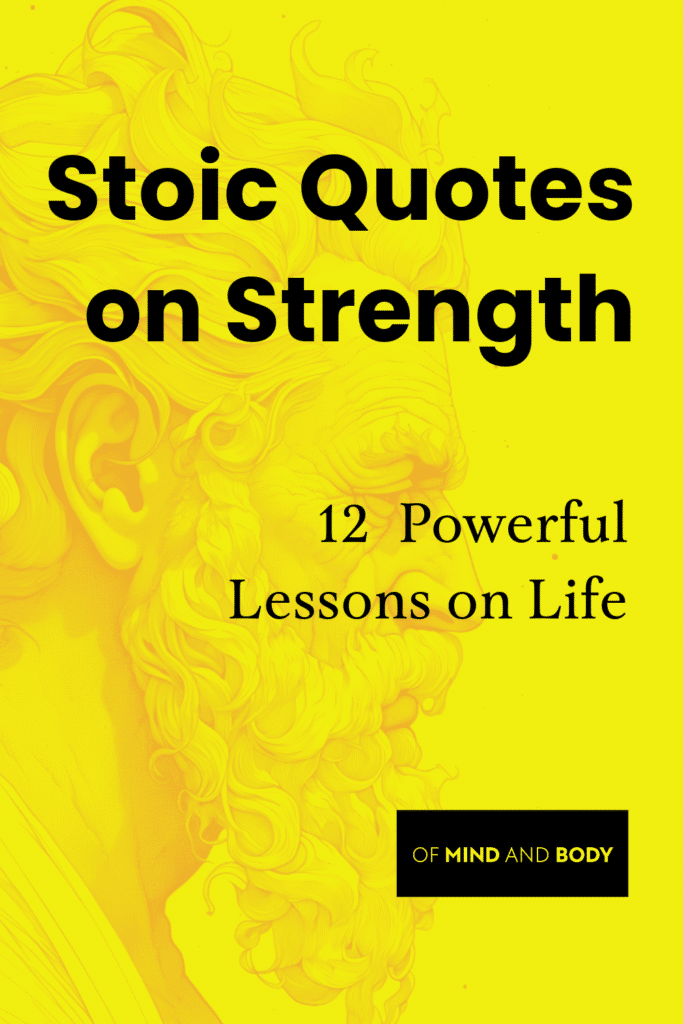
The Stoic back catalogue is a vast tome of profound insights that, despite their early beginnings, still resonate to this day. In this article we will take a closer look at 12 Stoic quotes on strength, investigate their meaning, and delve into how we can apply their wisdom in modern life.
Stoicism, an ancient Greek philosophy, teaches the development of self-control and fortitude as a means to overcome destructive emotions. In the Stoic view, true strength is found not in physical might but in the mastery of oneself. This philosophy, deeply rooted in the practice of mind over matter, offers timeless insights into the nature of strength.
Key Stoic Philosophers on Strength
The Stoic school of thought was led by prominent figures like Marcus Aurelius, Seneca, and Epictetus. Each philosopher brought a unique perspective to understanding strength. Marcus Aurelius viewed strength as a product of mental discipline, Seneca believed in resilience through hardships, and Epictetus emphasised inner freedom through self-control.
If you’d like to know more about Seneca, Epictetus and Marcus Aurelius before diving into the 12 Stoic Quotes on Strength, consider reading our article on the great Stoic Philosophers.
12 Stoic Quotes on Strength
In exploring the Stoic approach to life, we will delve into 12 profound stoic quotes about strength that have stood the test of time. Use the links below to discover their deeper meaning. Lets get into it…
- “You have power over your mind – not outside events. Realise this, and you will find strength.” -Marcus Aurelius
- “Difficulties strengthen the mind, as labour does the body.” -Seneca
- “The best revenge is to be unlike him who performed the injustice.” -Marcus Aurelius
- “We cannot choose our external circumstances, but we can always choose how we respond to them.” –Epictetus
- “Fire tests gold, suffering tests brave men.” -Seneca
- “No man is free who is not master of himself.” –Epictetus
- “It is not the man who has too little, but the man who craves more, that is poor.” -Seneca
- “If you want to improve, be content to be thought foolish and stupid.” –Epictetus
- “It’s not what happens to you, but how you react to it that matters.” –Epictetus
- “True happiness is to enjoy the present, without anxious dependence upon the future.” –Seneca
- “A gem cannot be polished without friction, nor a man perfected without trials.” -Seneca
- “First say to yourself what you would be; and then do what you have to do.” –Epictetus
“You have power over your mind – not outside events. Realise this, and you will find strength.”
Marcus Aurelius
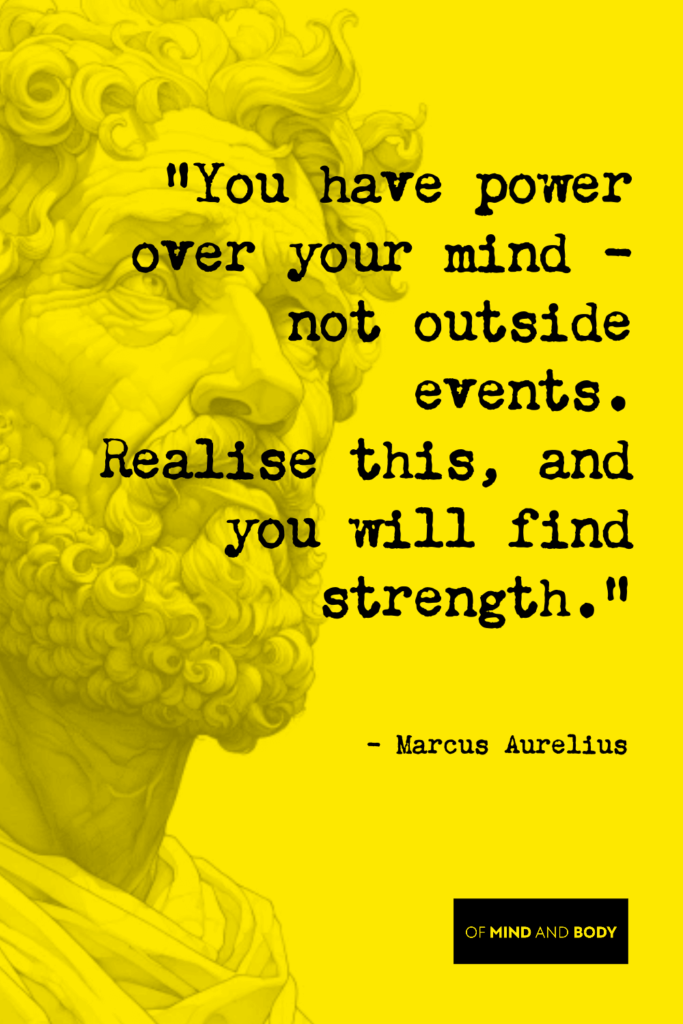
This profound quote by Marcus Aurelius serves as a cornerstone of Stoic philosophy, encapsulating the essence of mental resilience and internal strength. It teaches us that while we cannot control every aspect of our external environment – be it the actions of others, societal changes, or unforeseen events – we hold ultimate authority over our internal world. This perspective empowers us to navigate life’s unpredictability with a sense of composure and strength.
In today’s fast-paced and often stressful world, this quote takes on a practical significance. It suggests that the key to enduring strength is not found in trying to control the uncontrollable but in mastering our internal responses. By practicing mindfulness, we learn to observe our thoughts and emotions without being overwhelmed by them. This practice allows us to respond to situations with clarity and composure, rather than reacting impulsively.
Moreover, this philosophy encourages us to shift our focus from external validation or circumstances to internal growth and stability. It implies that true strength is built through self-awareness, self-regulation, and the ability to maintain an inner equilibrium in the face of life’s ups and downs.
By internalising this wisdom, we can approach life’s challenges with a grounded sense of confidence, knowing that our true power lies not in altering the external world, but in shaping our inner experience and reaction to it. It’s a call to cultivate a mindset where challenges are seen as opportunities for growth, and where our mental fortitude becomes our most reliable source of strength.
“Difficulties strengthen the mind, as labour does the body.”
Seneca
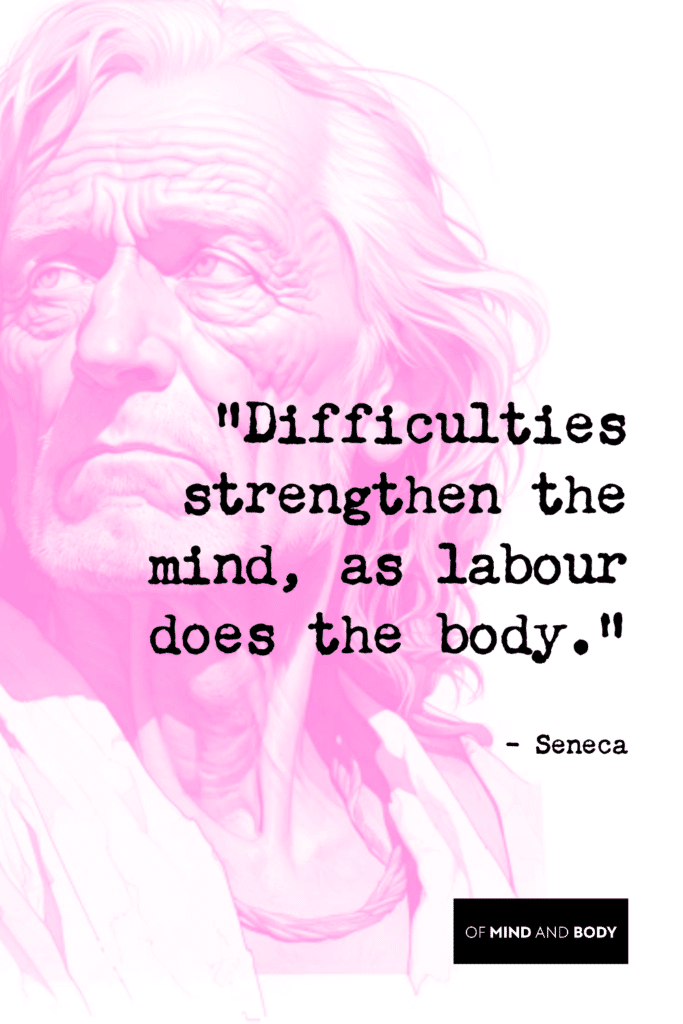
Seneca’s observation draws a vivid parallel between the development of physical and mental strength. Just as physical exercise challenges the body, leading to increased strength and endurance, mental challenges serve a similar purpose for the mind. This Stoic idea suggests that facing and overcoming life’s difficulties acts as a form of mental ‘exercise,’ building resilience, wisdom, and emotional fortitude.
The practical application of this philosophy in modern life is profound. It encourages a reevaluation of our attitude towards life’s inevitable challenges. Instead of perceiving difficulties as merely obstacles or sources of distress, we can choose to see them as catalysts for growth and self-improvement. This perspective fosters resilience, allowing us to not just endure but to thrive in the face of adversity.
Seneca’s quote also highlights the importance of a proactive approach to personal development. Just as athletes train regularly to maintain and enhance their physical fitness, we too can ‘train’ our minds through deliberate practices such as reflective thinking, problem-solving, and even exposure to challenging situations.
Adopting this philosophy nurtures a mindset of resilience. As a result, we view challenges with less trepidation and enhance our ability to manage stress and navigate obstacles. This change in mindset goes beyond merely surviving difficulties; it involves leveraging these experiences as tools to sculpt a more robust, flexible, and resilient character.
“The best revenge is to be unlike him who performed the injustice.”
Marcus Aurelius
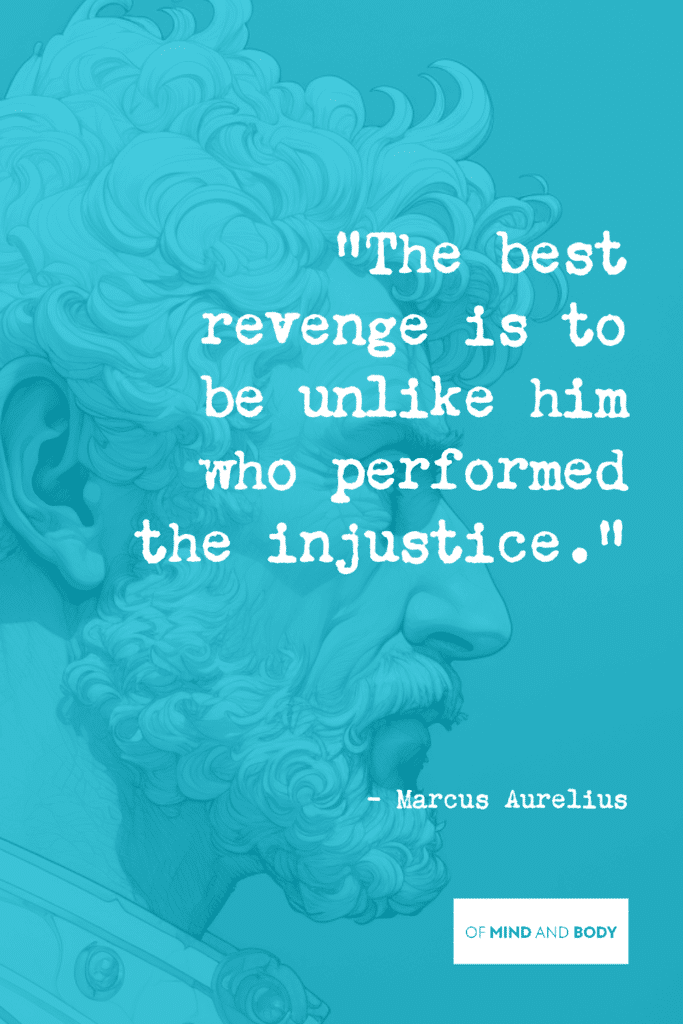
Marcus Aurelius’ profound insight highlights a powerful form of strength rooted in integrity and moral resilience. In the face of wrongdoing, the natural impulse may be to retaliate or mirror the negative actions of others. However, Aurelius advocates for a higher path – one where strength is measured not by the force of retaliation but by the steadfastness of one’s character and virtues.
In today’s context, this stoic quote on strength can be a guiding principle in dealing with personal, professional, or societal injustices. Instead of responding with similar negativity or bitterness, Aurelius encourages us to maintain our ethical standards and act in a way that aligns with our core values. This approach not only preserves our integrity but also demonstrates a formidable inner strength that transcends the immediate satisfaction of revenge.
Furthermore, this philosophy encourages us to focus on personal growth and emotional maturity. It’s about understanding that true strength is the ability to remain true to oneself, to act with kindness, empathy, and understanding, even when it’s challenging. By doing so, we not only set ourselves apart from those who do us wrong but also contribute positively to our surroundings, leading by example.
In essence, Aurelius’ wisdom teaches us that the most impactful form of strength is the quiet, enduring power of a virtuous character. This kind of strength has the potential not just to withstand the trials of injustice, but to transform them into opportunities for personal growth and moral leadership.
“We cannot choose our external circumstances, but we can always choose how we respond to them.”
Epictetus
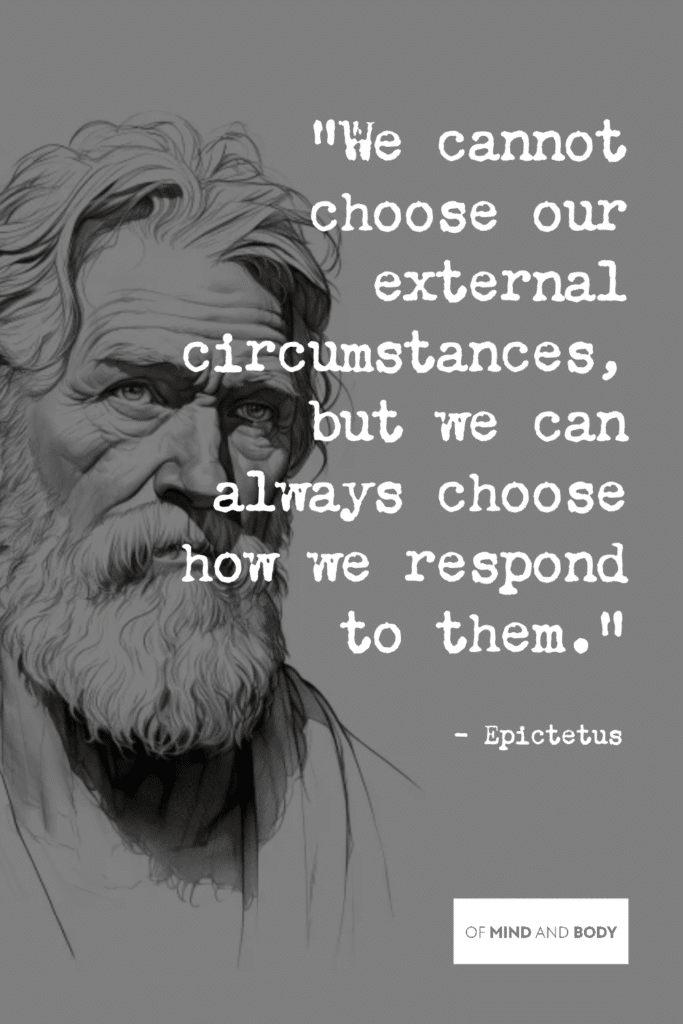
Epictetus, a prominent Stoic philosopher, brings to light a powerful concept: the strength inherent in choosing our responses to external circumstances. This quote encapsulates a fundamental Stoic belief — that our greatest strength lies not in altering the world around us, but in mastering our internal reactions. This perspective is particularly salient in the context of modern life, where external factors often lie beyond our control.
In understanding and applying this philosophy, we recognise that true resilience and strength stem from our capacity to maintain composure and wisdom, regardless of life’s vicissitudes. It’s about cultivating an inner fortress of stability and calmness, enabling us to navigate through life’s unpredictable tides with grace and equanimity. This inner fortitude is more than just a passive endurance of life’s trials; it’s an active engagement with our experiences, choosing responses that reflect our values and integrity.
In practical terms, this philosophy encourages us to focus on our mental and emotional resilience. It’s about developing a mindset that sees challenges not as threats, but as opportunities to demonstrate our strength of character. By practicing mindfulness, reflection, and emotional regulation, we can build a strong inner foundation that remains unshaken even amidst external turmoil. This form of strength, rooted in our ability to choose our responses, becomes a guiding force in our lives, empowering us to act with intention and purpose, regardless of the circumstances we face.
“Fire tests gold, suffering tests brave men.”
Seneca

Seneca’s poignant metaphor draws a parallel between the refining of gold and the fortifying of the human spirit. Just as gold must endure the intense heat of fire to be purified, so too must individuals face the trials of life to discover and strengthen their inner resilience. This perspective reframes suffering not as a mere misfortune, but as a crucible for developing fortitude and character.
In the modern context, this analogy resonates profoundly. Our personal battles, be they emotional, physical, or psychological, serve a purpose much like the fire to gold. They challenge us, often painfully, but in doing so, they strip away superficialities, leaving behind a more authentic and resilient self. This process, though arduous, cultivates a strength that is not merely about enduring pain but about transforming it into wisdom and inner power.
Seneca’s words suggest that true bravery is not the absence of fear or suffering, but the ability to persevere through it. It’s an encouragement to embrace life’s challenges, not as insurmountable obstacles, but as opportunities to grow stronger and more steadfast. Through this lens, every hardship becomes a chance to test and refine our character, much like the fire refines gold, leading us to a purer, more resilient version of ourselves.
“No man is free who is not master of himself.”
Epictetus

Epictetus, with this insightful statement, sheds light on a fundamental aspect of freedom and personal autonomy. He argues that true freedom transcends external liberties; it originates from self-discipline and mastery. This philosophy posits that the only true constraints are those we impose upon ourselves through lack of self-control. Freedom, therefore, is intrinsically linked to our ability to govern our own impulses, desires, and reactions.
In the context of our modern lives, this concept of freedom is incredibly relevant. We are often bombarded by external stimuli and pressures that can lead to reactive and impulsive behaviour. Epictetus’ wisdom encourages us to develop a kind of inner strength that acts as a buffer against these forces. This strength is cultivated through practices like mindfulness, self-reflection, and disciplined decision-making.
Moreover, self-mastery according to Epictetus, is not just about restraining negative impulses, but also about nurturing positive ones. It’s about aligning our actions with our values and principles, thereby granting us a sense of inner peace and integrity that is impervious to external chaos.
This perspective empowers us to face life’s adversities not as victims of circumstance, but as masters of our own destiny. By fostering self-control, we gain the strength to navigate life’s complexities with a sense of calm, focus, and purpose. It’s about finding freedom in our ability to choose our response to life’s challenges, transforming obstacles into stepping stones for personal growth and fulfilment.
“It is not the man who has too little, but the man who craves more, that is poor.”
Seneca
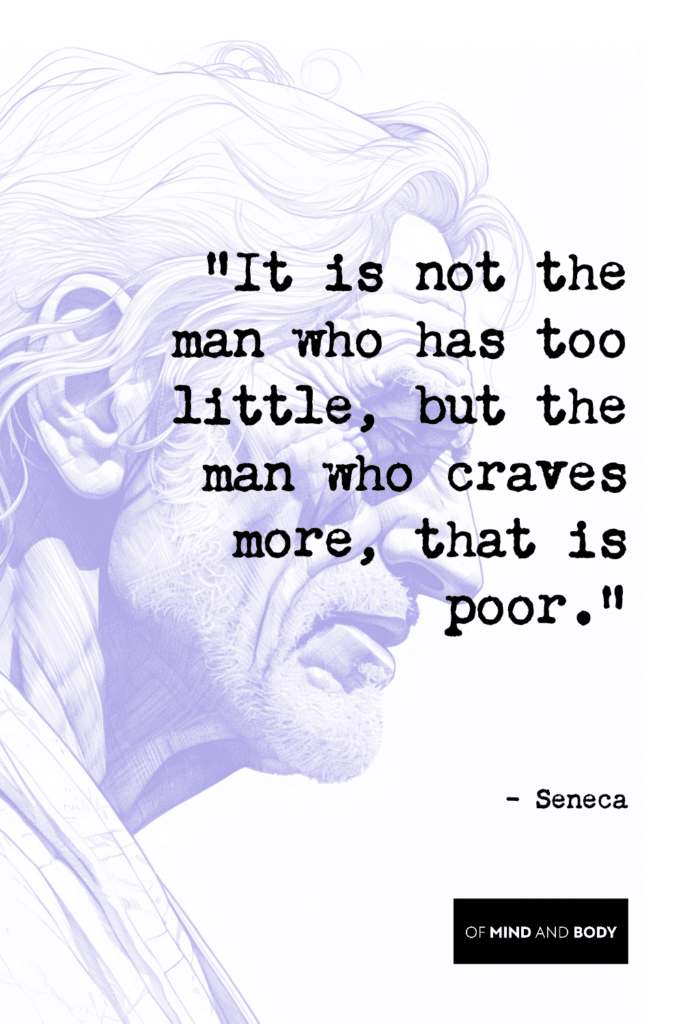
Seneca’s insightful observation offers a deep reflection on the nature of wealth and poverty. It challenges the conventional perception that scarcity is solely a matter of physical possessions. Instead, Seneca posits that real impoverishment lies in the perpetual craving for more. This perspective is a profound commentary on the human tendency to equate happiness with material acquisition, an endless pursuit often leading to a sense of emptiness.
This quote speaks volumes about the strength found in contentment and self-sufficiency. True strength, according to Seneca, is the ability to appreciate and find fulfilment in what we already possess. It’s about recognising the richness of our current lives and resisting the incessant urge to seek happiness in external, often materialistic, achievements.
In a world where consumerism and the pursuit of more are often glorified, this Stoic wisdom serves as a timely reminder of the value of simplicity. The strength Seneca describes is not just in appreciating what we have, but also in the freedom from constant desire. It’s about finding a sense of peace and satisfaction not from external accolades or possessions, but from within.
Embracing this philosophy can lead to a more centred and serene life. It’s a call to reassess our values and find joy and richness in the simplicity of life, understanding that the incessant pursuit of more can often lead to a cycle of dissatisfaction. Seneca’s words encourage us to cultivate inner wealth, which is immune to the fluctuations of external circumstances, and in doing so, find true strength.
“If you want to improve, be content to be thought foolish and stupid.”
Epictetus
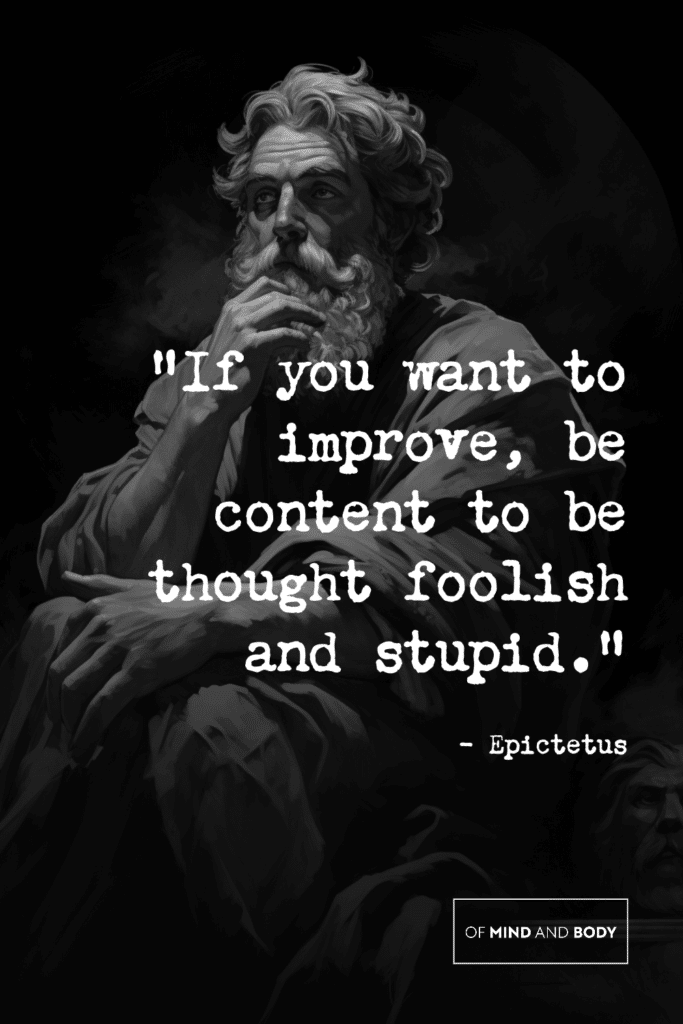
Epictetus, with this compelling aphorism, touches upon a fundamental truth in the journey of self-improvement and learning: the necessity of embracing vulnerability. This quote underscores the idea that true strength and wisdom often require us to accept temporary states of ignorance or misunderstanding. The path to improvement is paved with moments where we must risk appearing ‘foolish’ or ‘stupid’ in the eyes of others, a challenge that demands considerable courage and humility.
In a world where there is often a premium on appearing knowledgeable and competent, Epictetus’ words serve as a powerful counter-narrative. They encourage a mindset where the fear of judgement or embarrassment does not hinder our pursuit of knowledge and personal growth. This philosophy aligns with the modern understanding of a growth mindset, where learning is seen as an ongoing process that inherently involves making mistakes and learning from them.
Moreover, this quote speaks to the strength found in acknowledging our own limitations and being open to new experiences and ideas. It’s about valuing the process of learning over the perception of infallibility. In a practical sense, this can translate to actively seeking feedback, asking questions even when they seem elementary, and embracing new challenges without fear of failure.
By internalising this wisdom, we can develop a robust inner resilience that allows us to persevere in our personal and professional growth, uninhibited by the fear of how others might perceive our journey. It’s a liberating reminder that sometimes, the bravest and most impactful thing we can do is to admit we don’t have all the answers and to be open to learning, no matter how vulnerable it makes us feel.
“It’s not what happens to you, but how you react to it that matters.”
Epictetus
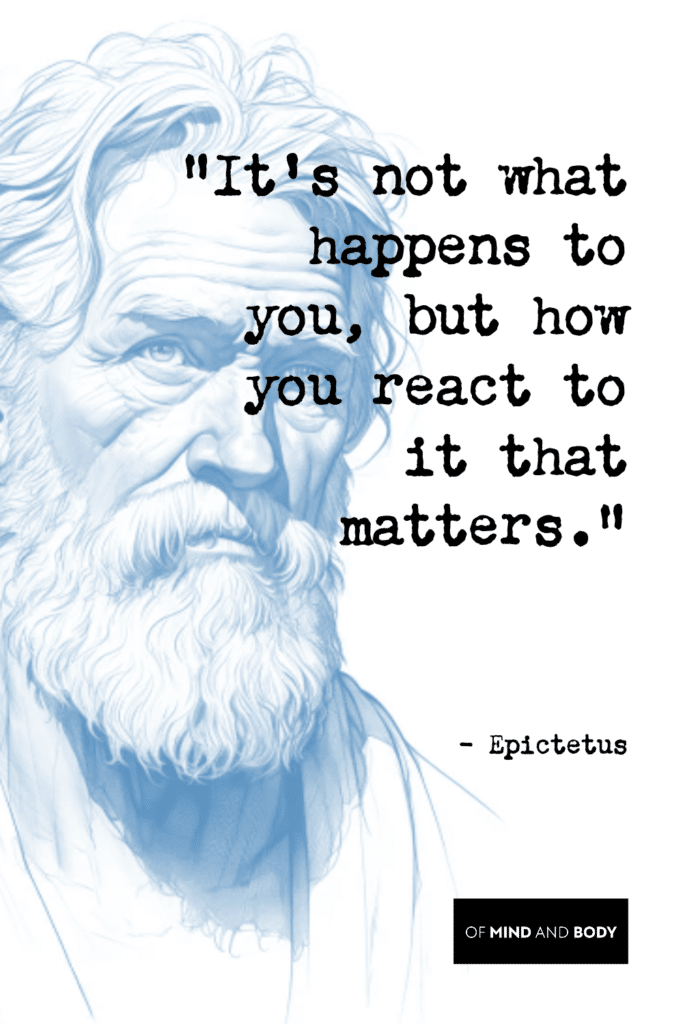
Epictetus presents a compelling insight into the nature of human resilience and strength. His words emphasise the significant role of personal agency in shaping our life experiences. According to Epictetus, the events in our lives do not define us; rather, it is our reactions to these events that reveal our true character and strength. This idea profoundly shifts the focus from external circumstances to internal choices.
In practical terms, this philosophy is a call to cultivate emotional intelligence and resilience. It encourages us to pause and reflect before reacting, allowing us to choose responses that align with our values and goals. This conscious choice-making process builds a robust inner foundation, equipping us to face life’s challenges with grace and flexibility.
Furthermore, Epictetus’ principle underlines the importance of adaptability. Life is replete with unexpected twists and turns, and the ability to maintain composure and clarity amidst these changes is a hallmark of true strength. By embracing this perspective, we develop a resilient mindset that sees challenges not as obstacles but as opportunities for personal growth and learning.
Ultimately, this quote is a reminder that our power lies not in changing the world around us but in mastering ourselves. By focusing on developing our inner strength and capacity for adaptive responses, we become architects of our own well-being and resilience. In a world that often feels unpredictable and chaotic, this Stoic wisdom provides a pathway to enduring strength and peace.
“True happiness is to enjoy the present, without anxious dependence upon the future.”
Seneca
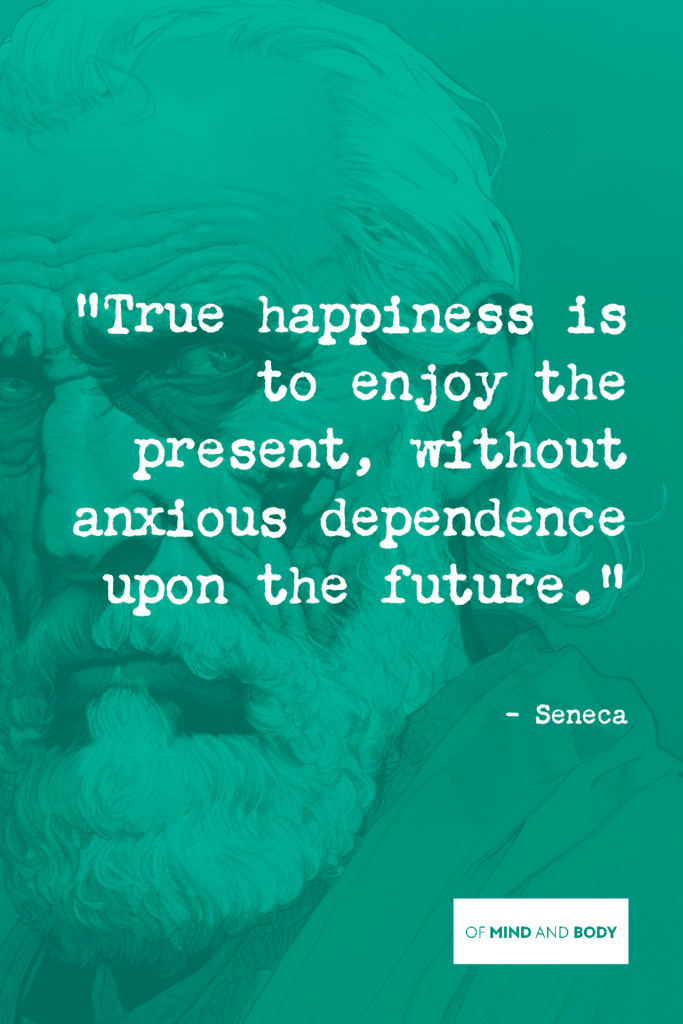
Seneca’s insight touches the core of what it means to find true happiness and strength in our lives. His words underscore the importance of living in the present moment, a concept that is increasingly relevant in our fast-paced, future-oriented world. The strength Seneca refers to is not just about mental toughness; it’s about the courage to embrace the present fully, without being ensnared by anxieties about what’s to come.
This quote suggests that real happiness and emotional resilience are nurtured not by obsessing over future possibilities, but by deeply engaging with the here and now. In practising mindfulness, we learn to appreciate the richness of the present moment, finding joy in the simple, everyday experiences that we often overlook when our minds are preoccupied with future events. This presence of mind not only enhances our current experience of life but also fortifies us against the stresses and uncertainties of the future.
Embracing the present involves recognising the transient nature of life and understanding that worrying about the future does not prevent hardships but often diminishes our current happiness. It is a call to shift our focus from what could be to what is, grounding ourselves in the reality of our experiences and finding strength in our capacity to navigate the present with mindfulness and grace.
“A gem cannot be polished without friction, nor a man perfected without trials.”
Seneca
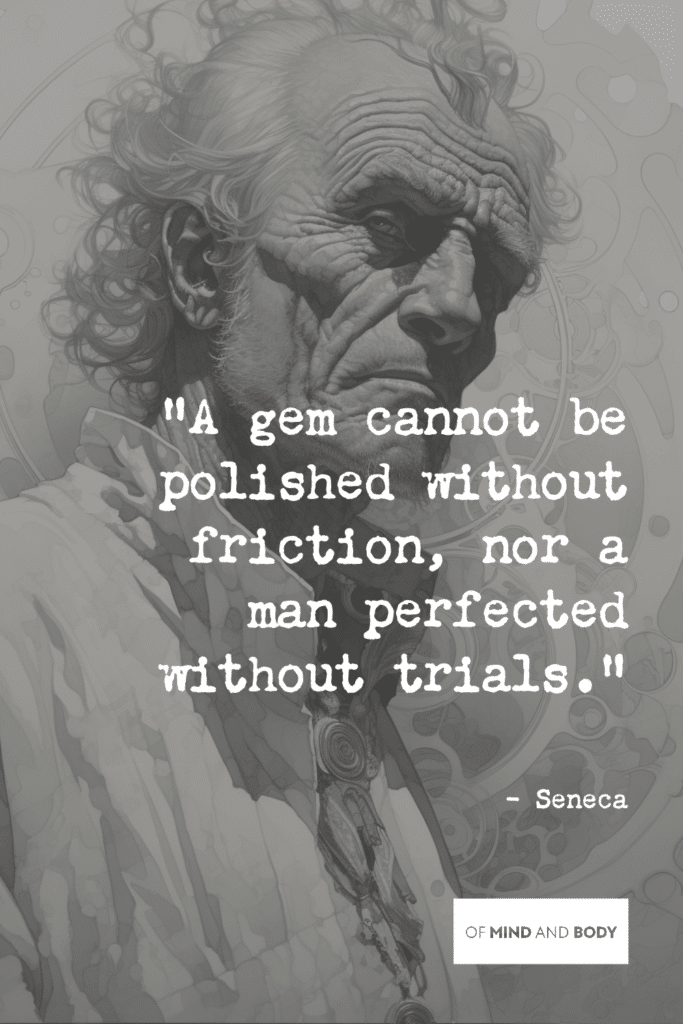
Seneca’s metaphor beautifully captures the essence of personal growth and resilience. He implies that just as a raw gemstone needs to endure the harsh process of polishing to reveal its true beauty and lustre, individuals too need to face challenges and trials to fully develop their character and capabilities. This philosophy acknowledges the intrinsic value of hardships, not as mere obstacles, but as essential elements in the journey of developing personal strength and self–improvement.
The notion here is that it’s through the process of overcoming difficulties that we discover and refine our strengths, virtues, and potentials. It suggests that the path to self-realisation and excellence is not one of ease and comfort, but one of resilience, perseverance, and transformation. This perspective encourages us to view trials not as burdens to be avoided, but as opportunities to forge our character, much like a gemstone is shaped under pressure.
Furthermore, this quote invites us to embrace life’s adversities, understanding that they play a crucial role in our personal evolution. It encourages a mindset of proactive engagement with challenges, seeing them as catalysts for growth and self-discovery. In essence, Seneca is advocating for a life approach where endurance and resilience are seen not just as survival tactics, but as means to achieve a deeper, more meaningful form of personal excellence and fulfilment. The strength celebrated here is one of enduring and thriving through trials, recognising that in the process, our true character and brilliance are revealed and honed.
“First say to yourself what you would be; and then do what you have to do.”
Seneca
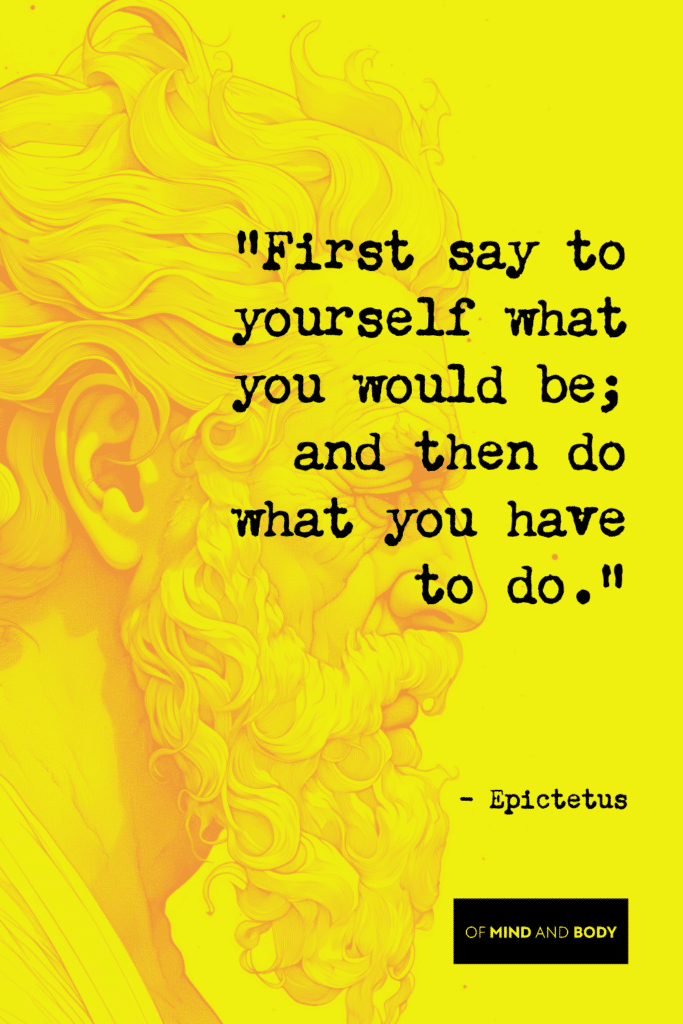
Epictetus‘ words here are a powerful reminder of the foundational role that self-awareness and intention play in personal strength and development. This quote emphasises the importance of first defining who you want to be – establishing a clear vision of your ideal self, grounded in your deepest values and aspirations. It’s about setting a course for your life that is authentically yours, not one shaped by external influences or fleeting desires.
Once this vision is set, the quote urges us to take action – to align our daily choices and behaviours with our desired identity. This is where the true test of strength lies. It’s not just about dreaming or wishing; it’s about doing. This process requires unwavering commitment and mental fortitude, especially when faced with challenges or when our goals require us to step out of our comfort zones. It involves a continuous cycle of self-reflection, decision-making, and action-taking.
Moreover, this journey of self-actualisation is often marked by obstacles and setbacks. It demands resilience and adaptability, as well as the strength to remain steadfast in our pursuits despite external pressures or internal doubts. Epictetus is highlighting the transformative power of living with purpose and conviction. It’s about embracing the responsibility of shaping our destiny and being an active participant in our own lives.
In essence, Epictetus‘ stoic quotes on strength is a call to action for anyone seeking to forge a meaningful and authentic life. It’s a reminder that the path to personal strength and fulfilment begins with a clear understanding of who we are and what we stand for, followed by the courage and discipline to manifest that vision in the world.
Final Thoughts
As we reflect on these Stoic teachings, we’re reminded of a profound truth: true strength is not about physical might or external achievements; it’s a state of mind, honed through understanding, resilience, and the mastery of our thoughts and reactions. These timeless quotes from Stoic philosophers offer us a blueprint for cultivating inner strength and facing life’s challenges with grace and composure.
Each of the stoic quotes on strength, each nugget of wisdom, encourages us to look inward, to find our power in the calm control of our mindset and the deliberate responses we choose. They invite us to see life’s trials not as insurmountable obstacles, but as opportunities for personal growth and fortification of character.
Now, as we come to the end of this exploration, I invite you to pause and reflect: Which of these quotes struck a chord with you? How do these age-old insights resonate with your personal experiences? Sharing your thoughts and interpretations can be a powerful way to internalise these lessons and apply them to your life. Whether it’s embracing challenges with a growth mindset, finding peace in acceptance, or cultivating resilience in adversity, each principle offers a pathway to a stronger, more centred self.
Embrace these teachings, apply them in your daily life, and watch as they transform not just your perception of strength, but your very approach to life’s complexities. Remember, the journey to self-mastery is ongoing, and each step, each choice, is a testament to your growing strength.



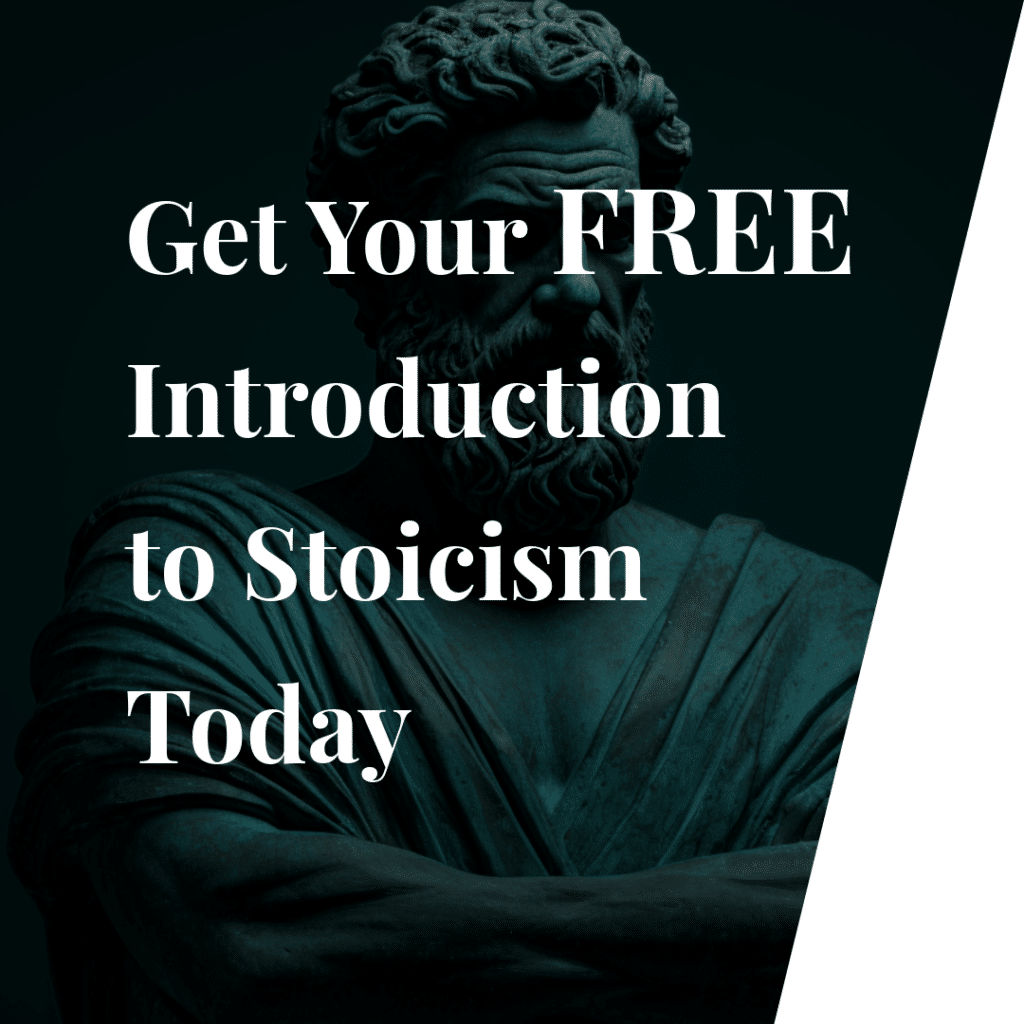
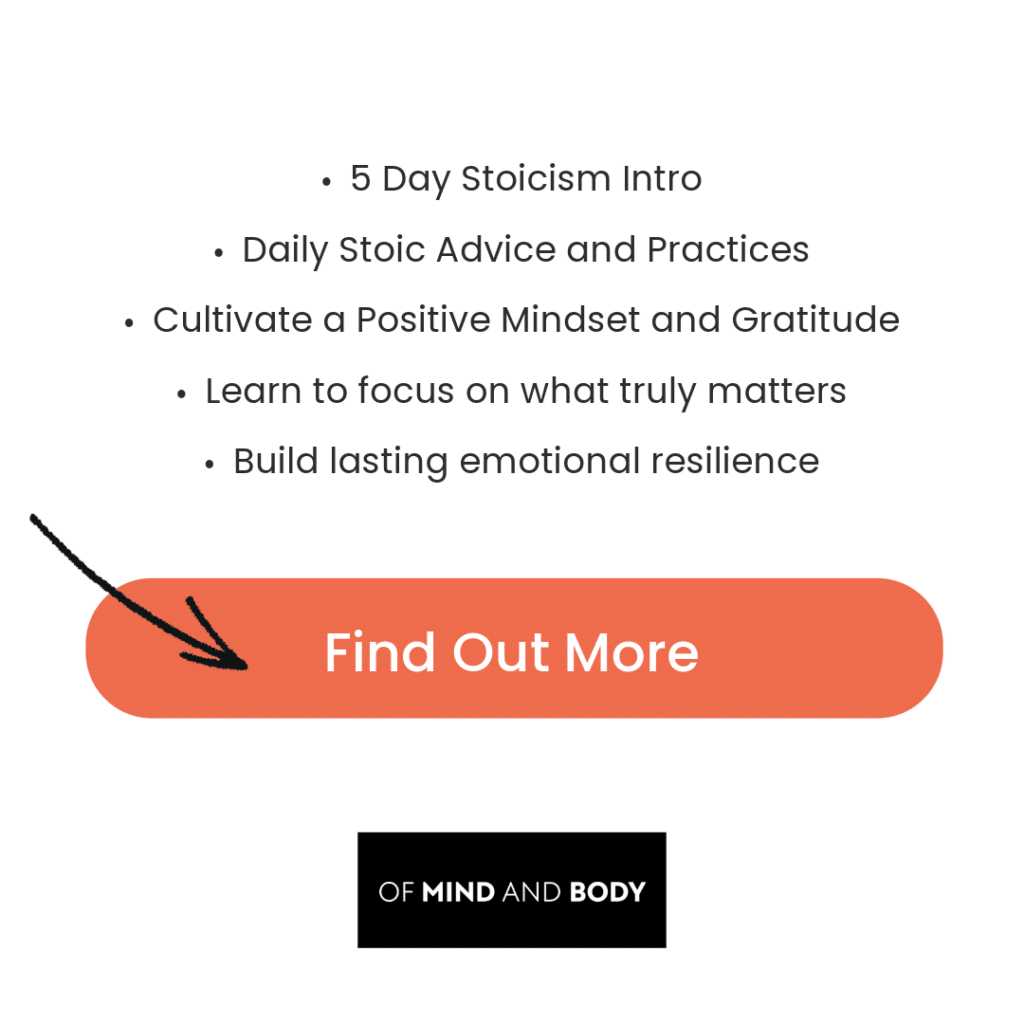
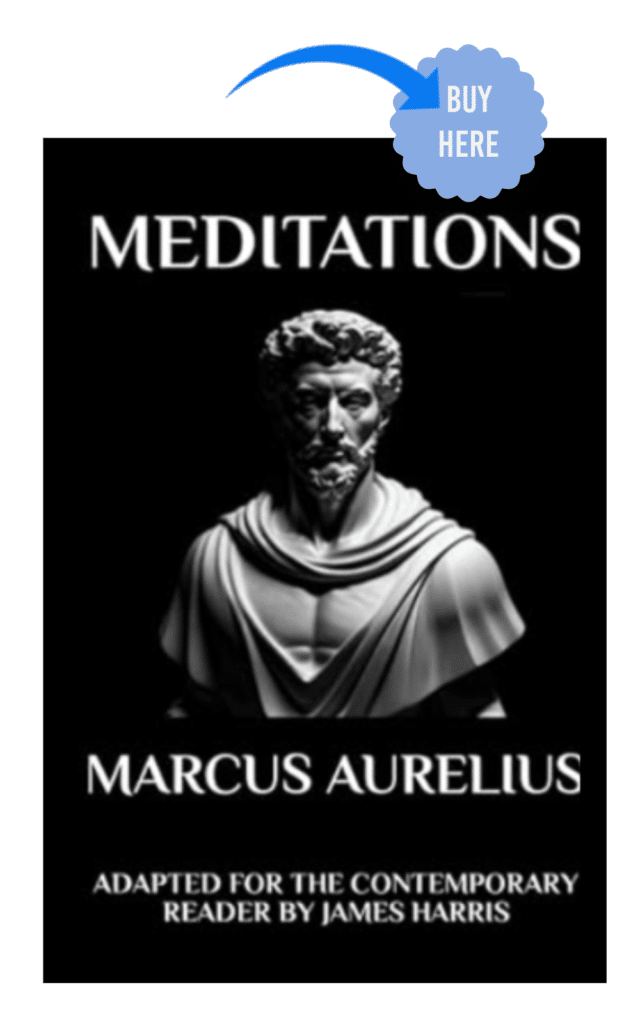
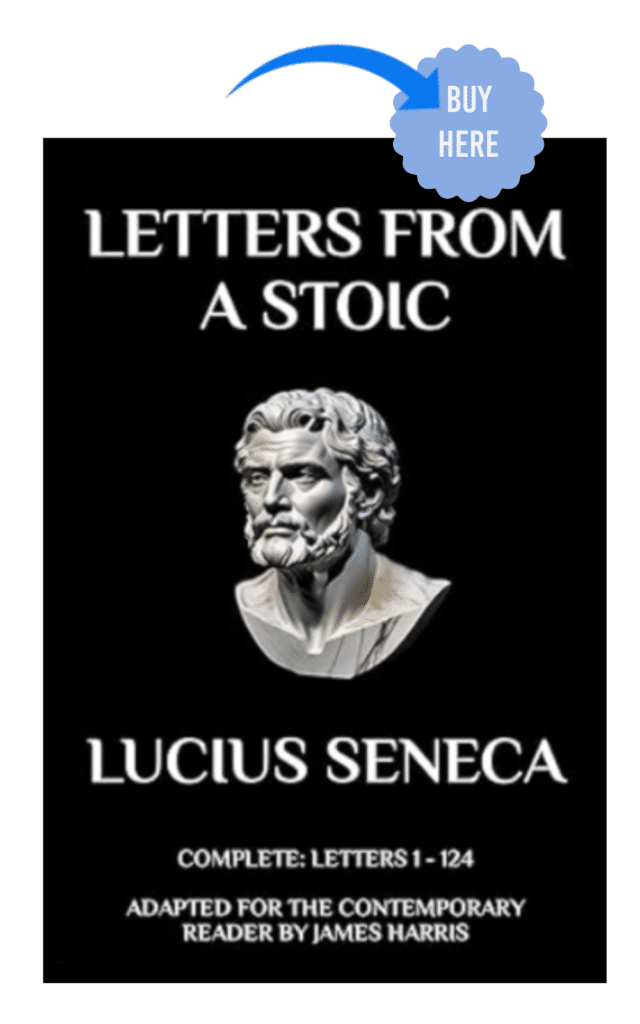
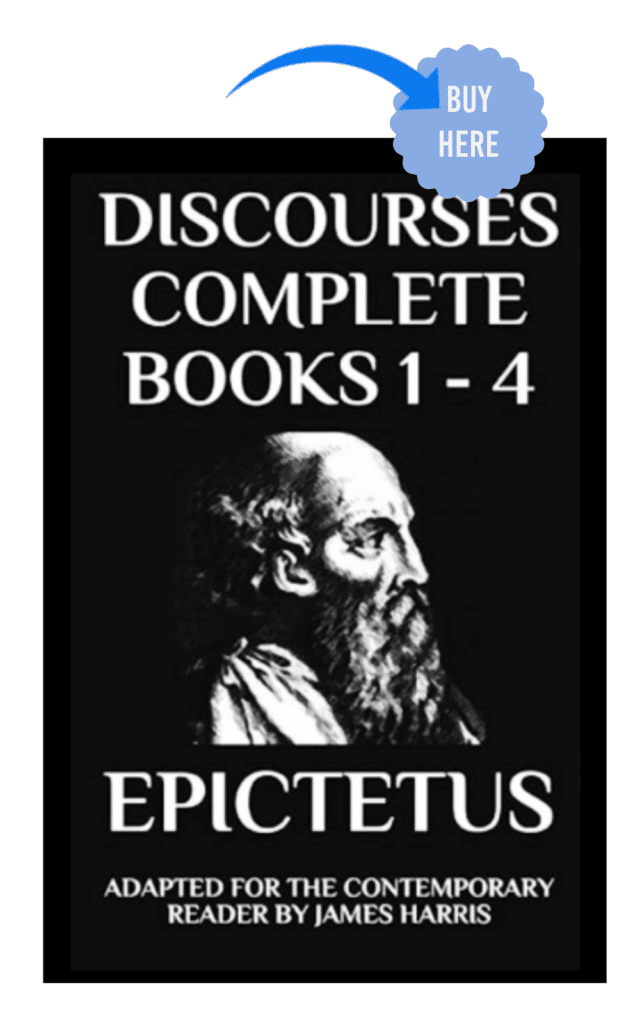
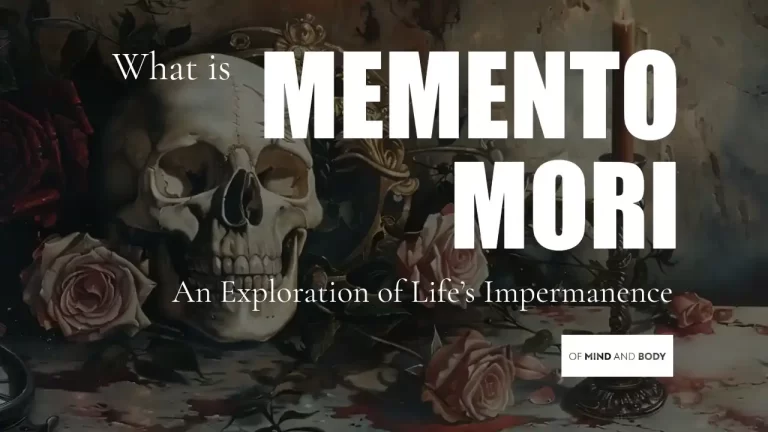
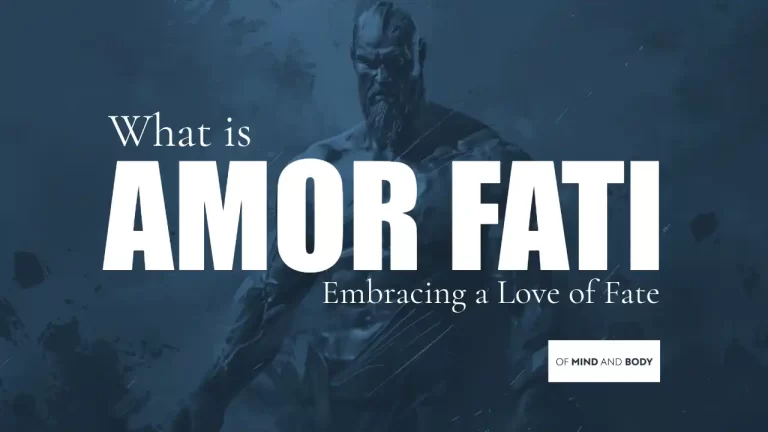

3 Responses